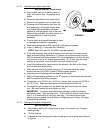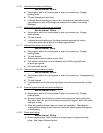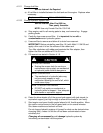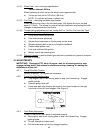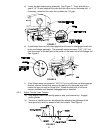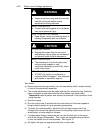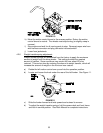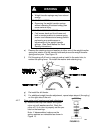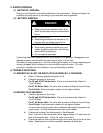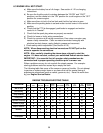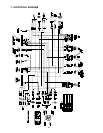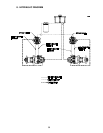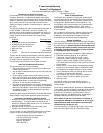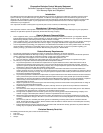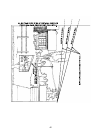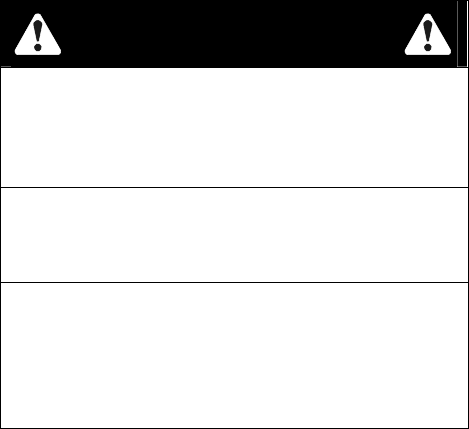
35
5. WASTE DISPOSAL
5.1 MOTOR OIL DISPOSAL
Engine oil and hydraulic oil are both pollutants to the environment. Dispose of used oil at
a certified recycling center or according to your state and local regulations.
5.2 BATTERY DISPOSAL
DANGER
POTENTIAL HAZARD
♦ Battery electrolyte contains sulfuric acid,
which is poisonous and can cause severe
burns
WHAT CAN HAPPEN
♦ Swallowing electrolyte can be fatal or if it
touches skin can cause severe burns.
HOW TO AVOID THE HAZARD
♦ Wear safety glasses to shield eyes, and
rubber gloves to protect skin and clothing
when handling electrolyte.
♦ Do not swallow electrolyte.
Federal law states that batteries should not be placed in the garbage. Management and
disposal practices must be within relevant federal, state, or local laws.
If a battery is being replaced or if the unit containing the battery is no longer operating and
is being scrapped, take the battery to a local certified recycling center. If no local
recycling is available return the battery to any certified battery reseller.
6. TROUBLE SHOOTING
6.1 MOWER PULLS LEFT OR RIGHT (WITH LEVERS FULLY FORWARD).
a) Refer to Tracking Adjustment Section 4.2.5
b) Check air pressure in drive tires.
For 20 and 23 HP Kohler Units: The drive tires should be inflated to
13 psi (90 kpa).
For 27 HP Koher Units: The drive tires should be inflated to 9 psi (62 kpa)
For All Units: Semi-pneumatic casters do not require inflation.
6.2 MOWER CUTS UNEVENLY.
a) Check air pressure in drive tires.
For 20 and 23 HP Kohler Units: The drive tires should be inflated to
13 psi (90 kpa).
For 27 HP Koher Units: The drive tires should be inflated to 9 psi (62 kpa)
For All Units: Semi-pneumatic casters do not require inflation.
A more uniform cutting height may be obtained with higher tire pressure on
rough terrain. A lower tire pressure provides more flotation.
b) Check deck leveling (See Adjustments in Deck Manual).
Note: The front of the mower deck will be approximately 1/4” lower than the
back of the mower deck. This is the “rake” of the deck.
c) Check the distance from the bottom edge of the deck skirt to the tip of each
blade. Measurement should be consistent between all blade tips.



